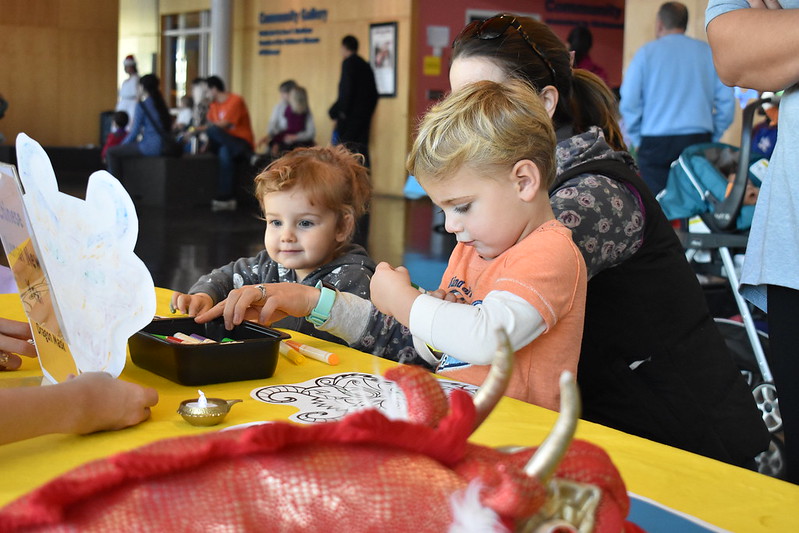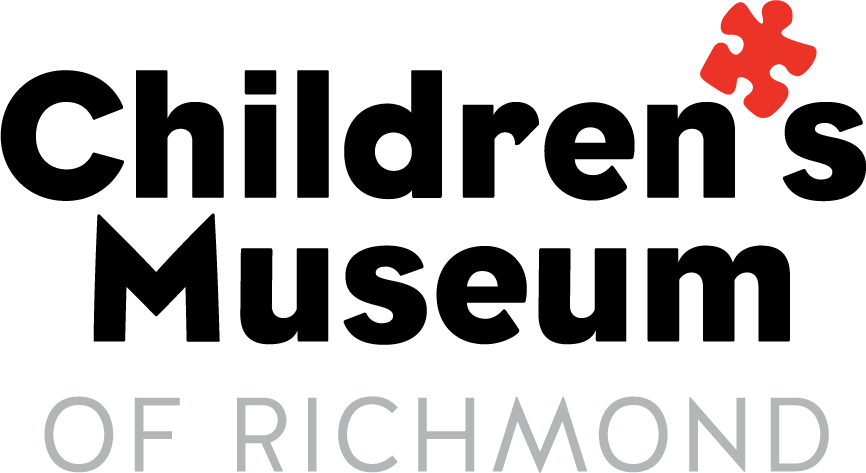Our Educational Philosophy

The Children’s Museum is dedicated to supporting and enhancing learning through play. We recognize that 90% of brain development occurs in the first five years and that we can play a pivotal role during this critical time by ensuring our programs are built on a strong educational framework. Our framework explicitly informs/guides caregivers to deepen the impact on young children beyond the museum experience.
Learning Purpose:
To show the value of learning through play by providing meaningful programs that engage and enhance interactions for both children (0-8 years old) and their caregivers.
The Children’s Museum believes “Virginia is for Learners” and supports the 5 C’s:
- Critical Thinking
- Creative Thinking
- Communication
- Collaboration
- Citizenship Skills
Core elements of our programs include:
- Play and hands-on experiences
- Embedded literacy
- Executive function/life skills support
- Teacher/caregiver empowerment
Guiding Principles:
- Children are capable of creating their own unique answers
- Children learn through play and hands-on experiences
- Children thrive from informal learning that honors their individual learning styles
- Children and families are at the center of everything we do
- Children need a strong foundation in literacy and life skills for success
Learning Principles:
The Children’s Museum of Richmond (CMoR) is most impactful when we understand and are involved in addressing the social, cultural, educational, and developmental issues that affect children in our community.
The following learning principles guide and inform our planning and programming.
- Family/Caregiver Engagement supports and enhances both child and caregiver learning and involvement.
- Play Focus is how children learn and understand their world.
- Literacy is a critical underpinning for school readiness and lifelong success.
- Essential Life Skills support executive function and need to be fostered.
Outcomes:
- Children who are excited about learning and are ready for school
- Parents/Caregivers that understand their role in early learning
- Teachers who recognize their role in early learning
- A community that understands and supports the importance of early learning and the role of the museum in learning and school success
